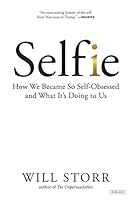Sublime
An inspiration engine for ideas
in at least one of Freud’s envisionings of this, we are by inclination self-satisfying and self-satisfied creatures forced to acknowledge our dependence on others.
Adam Phillips • Missing Out: In Praise of the Unlived Life
The self is an illusion
Mike "Bagel" • 2 cards
The True Self is bound up with bodily aliveness.
Adam Phillips • Winnicott
He told me bluntly that instead of acknowledging our limitations and trying to live within them, we have—en masse—fallen for an enormous delusion.
Johann Hari • Stolen Focus: Why You Can't Pay Attention--and How to Think Deeply Again
logorrheic
Katie Kitamura • Intimacies: A Novel
I, as the conscious witness of my experience,
Sam Harris • Free Will
‘Don’t be confused, Vikram,’ he said pleasantly. ‘Didier only has one subject—himself.’ ‘And his curse,’ Karla added quickly, ‘is that it is a fascinating subject.’
Gregory David Roberts • Shantaram: A Novel
Thesis antithesis synthesis.
Matt Haig • The Midnight Library: The No.1 Sunday Times bestseller and worldwide phenomenon
